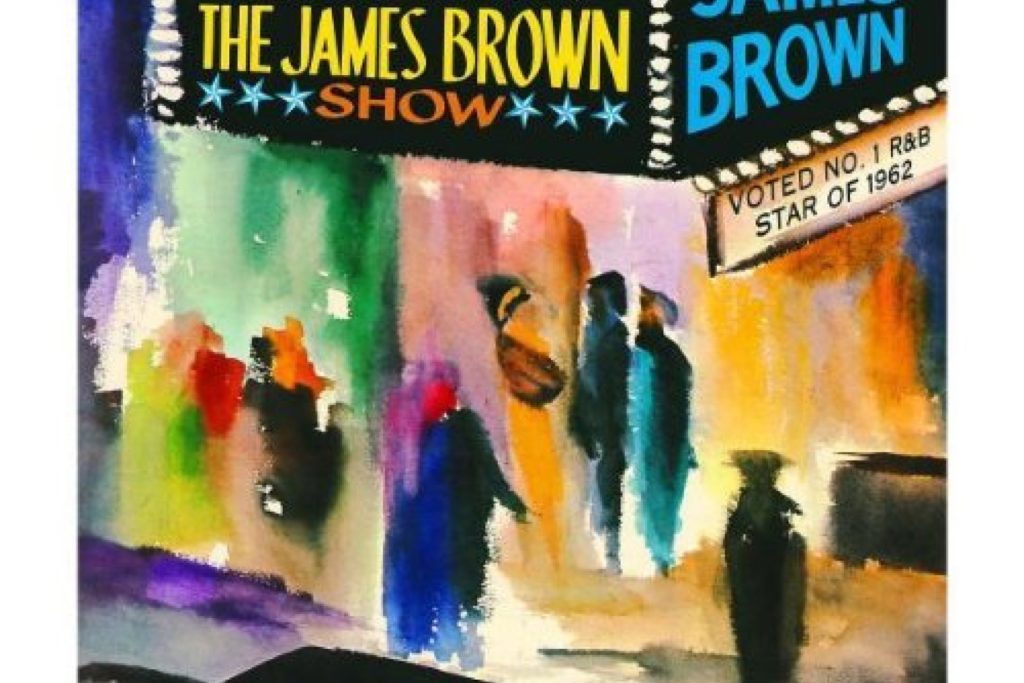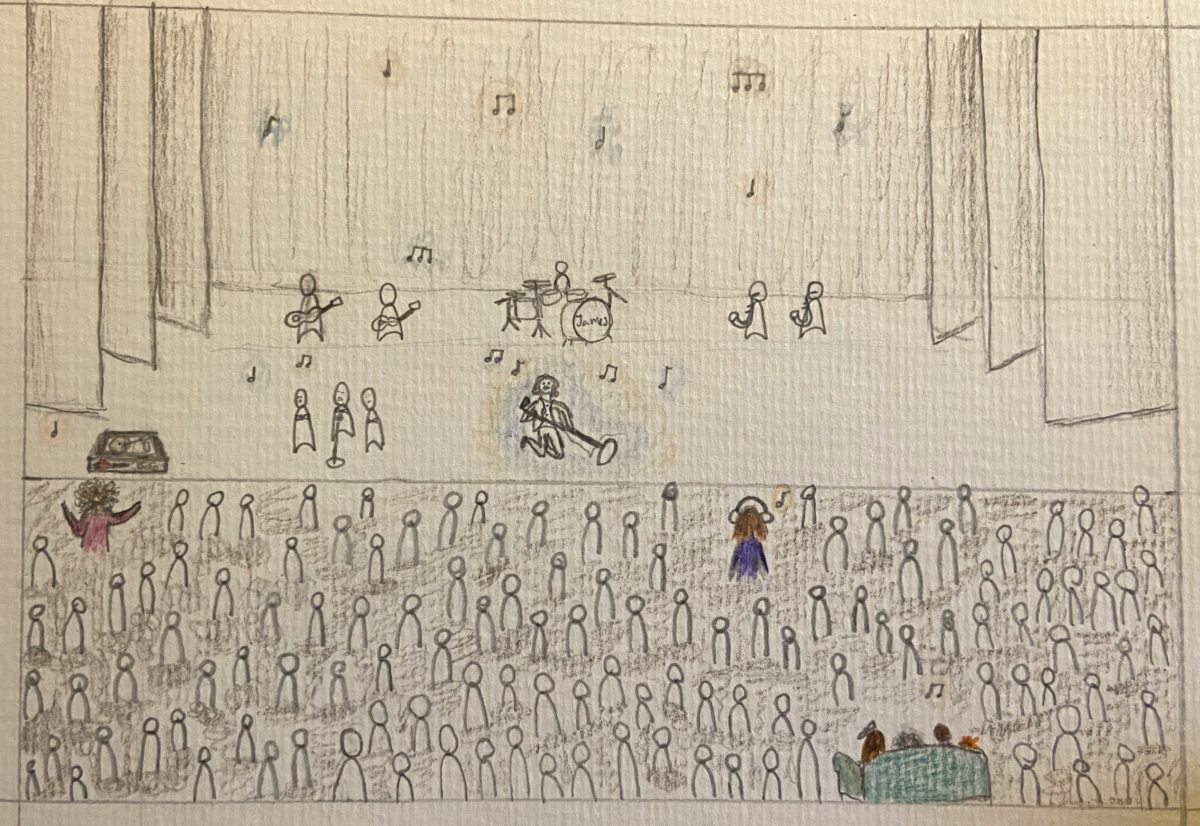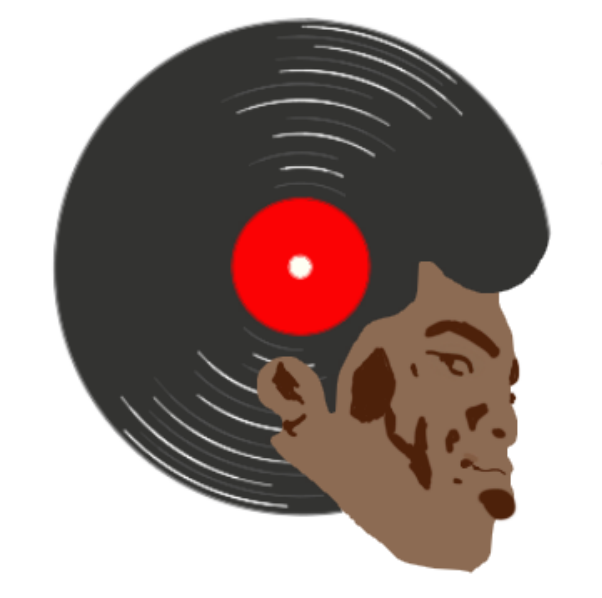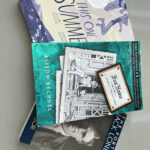The History and Popular Music of the ’60s class learned about James Brown’s classic live album, Live at the Apollo (1963). Here are their reactions.
Lily Brooks:
The album opens up strong with an excited audience and a band solo, which transitions perfectly into “I’ll Go Crazy.” Even the introduction made me want to be there to hear James Brown sing live myself. It is no doubt that this album brought on the new wave of an artist releasing live records, but although the first, it is still one of the best, as Maycock says in his essay: “Everybody started doing live albums, everybody jumped on the bandwagon.” I thought the energy that radiated from Brown and the audience was a perfect combination that just bounced off each other. After looking up videos on YouTube of him preforming I saw the raw energy that he and his band gave off, and it made me understand why the audience was so excited. The band was so synchronized and clear that it sounded as if it was recorded in the studio, which might be because as I found out, James Brown knew his music so well, that if he heard a band member miss a note or a step he would point to them mid-song and sometimes fine them money off their paycheck. Which I think is a great way to describe how musically gifted Brown was. Although some disagree, I think the backing vocals never distracted, and in fact some songs, such as “I’ll Go Crazy” and “I Don’t Mind,” it was necessary. I also thought there was a perfect mix of upbeat songs and slower ballads within the album while also sounding cohesive. My favorite song, “I Don’t Mind,” had so much soul and I felt as if everyone performing had given it their 100%. I also thought it was interesting to find out that he had slowed down/sped up some of his songs while preforming to fit the concert better. The only thing wrong with this album in my opinion is that it wasn’t long enough. I can tell through this album how much hard work he puts into his music and performances, which I think is why he is known for being “ the Godfather of Soul.”
Pritam Khalsa:
Alex Skiles:
Conor McGeady:
Live at the Apollo by James Brown was immensely popular among the American public due to the pumped-out energy the tracks gave to the listener. The album was, for the most part, very energetic and instrumentally engaging, especially among tracks such as “Think,” “Night Train” and “I’ll Go Crazy,” while also having some slow and melodic tracks such as “Try Me” and “Lost Someone.” This was also one of the first albums to be performed live in a certain sequence, as opposed to most other artists at the time, who mainly focused on releasing catchy singles to obtain the attention of the radio. Regardless of my opinion, this is a classic of an album, and was revolutionary of it’s time, due to the “live” aspect of it, and the fact that the people who did see it live have a special connection to it pioneered the idea of live recordings in the music industry. Despite its subjective flaws, this is and always will be a timeless record that has been ingrained into the history of music.
This record is full of fun and playful tunes. The record shines when played as dance music in the background, so maybe when you’re cooking, reading or driving, but need to focus on what you’re doing. While the lyrical content isn’t very innovative or special, the tone and vibe of the album has amazing instrumentation, and combined with a skillful vocal performance by James Brown, is at the heart of soul music, hence Brown’s nickname: The Godfather of Soul. For me, some stand out tracks were “Think,” “I Don’t Mind” and “Night Train,” mostly due to the lively energy emitted from the passionate vocals as well as the rhythmic drums and swooning bass. In my opinion, the opus of this record are the fun, lively tracks like these, that have so much life.
While Live at the Apollo is an absolute classic, that doesn’t make it flawless. Some flaws are due to some of the instrumentation sounding a bit dated, or just musical decisions that are a little disorienting to hear. Personally, I thought the backing vocals throughout the entire album felt very dated, and didn’t really blend with the rest of the instruments or even the lead vocals. I also had some small problems with the use of strings on certain tracks, especially the way there were used to make the tune sound sappy, like they did on “Lost Someone.” I thought that was the weakest song on the record, both due to its length as well as a select few musical choices, such as the strings, made it a bland listen for me. Other than that, there were really only a few knit-picks when it comes to casual listening.
I’m sure if you were to analyze in extreme depth, there might be more things to point out, but for a somewhat laid back listen to a laid back album, I had a great time with it, and I’d highly recommend it to anyone who’s looking for some upbeat tunes. James Brown was a musical wizard, and this album truly reflects his knowledge of music, and hopefully won’t be forgotten any time soon.
Gibson McCoy:
The lyrics are made up of all of his song names on the album including the medley.
Sam Swartley:
I covered “I Don’t Mind,” playing the bass line on a loop pedal and soloing over it. Tried to capture the chill vibes of James Brown.








I have got to say – I love the analysis of this record and now I have got to hear this record! Thank you!